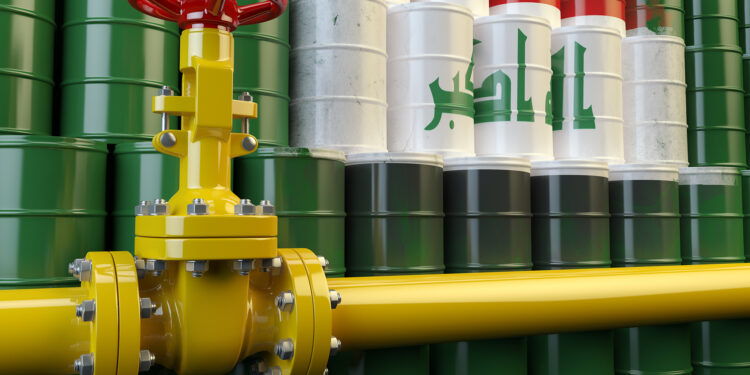Iraqi Foreign Minister Fouad Hussein said that his government is working to settle technical issues with the Kurdistan Regional Government of Iraq to restart the crude oil export pipeline to Turkey, after a closure that lasted nearly two years cost Iraq about 19 billion dollars in the missing returns.
The Iraqi parliament recently modified the public budget, paving the way for the resumption of the export of Kurdistan region’s oil to the Turkish port of Jihan after it stopped two years.
The amendments aim to support the costs of producing international oil companies in the Kurdistan region, and this approval is an important step towards resuming oil exports to Türkiye. In this context, the cost of extracting and transporting the oil barrel in the region was set at $ 16.
Legal framework
“Bloomberg” quoted Minister Fouad Hussein as saying on Friday, Friday, on the sidelines of the Munich Security Conference, “the legal framework was agreed upon, and what relates to technical matters between the oil companies and the Iraqi federal government and the Kurdistan Regional Government to start export, pointing to discussions revolving around the quantities of oil that will take place Consuming it locally, and what will be exported.
Iraq was emerging between 400 thousand to 500 thousand barrels per day of fields in the north of the country, including the Kurdish region, through the stopping pipeline heading towards Türkiye.
Oil Minister Hayyan Abdel -Ghani said, earlier this month, that Iraq is planning to transfer at least 300 thousand barrels per day of crude oil as soon as the operations are resumed, adding that the Iraqi administration also started an official operation to carry the Kurdistan Regional Government to transfer oil to a company Sumo, affiliated with the Ministry of Oil, which takes into account the marketing process.
Hussein explained that the oil production in the Kurdish region is about 280 thousand to 300 thousand barrels per day, and the Kurdistan Regional Government estimates its needs for local consumption, including to generate energy at about 110 thousand to 120 thousand barrels per day, adding that Baghdad believes that a fewer may be sufficient.
“I hope they can start talking to each other next week, and I think that if they reach an agreement within a few days, the matter will be over,” Hussein said about the amount of oil needed for local consumption.
It is noteworthy that Turkey had stopped flows through the pipeline, which transports oil from the Kurdish region in Iraq to the Turkish port of Jihan, in March 2023, after it was ordered by an international jury to pay about $ 1.5 billion in compensation to Iraq to transport oil without the approval of Baghdad.
Ankara refused to pay the fine and instead asked the Kurdistan Regional Government to pay it.
Slight
Hussein said it is a “simple conflict,” noting that it can be dealt with when the two countries enter into talks to renew the oil transport contract, which will end next year.
“If oil exports start, such issues will be resolved,” he added.
For its part, Ankara has repeatedly said that the pipeline is ready for operations, and that the matter is up to Iraq to resume flows, and the United States expressed its strong desire to see the flow of oil through the Iraqi -Turkish pipeline.
Hussein said that the chances of restarting the pipeline “as soon as possible” increased after the Iraqi parliament agreed to an amendment to the budget law, to increase payment for production and transport to $ 16 from $ 6 a barrel.
He added that the oil companies agreed to pay, which is a “temporary” arrangement until the investigation is made by foreign experts in the actual cost of production and transportation.
The pumping through the pipeline may be a dilemma of Baghdad, which is obligated to reduce crude production as part of the OPEC Plus Agreement, but it is fighting to adhere to the discounts.
The production and exports of the Organization of Petroleum Exporting Countries are under increased scrutiny, after US President Donald Trump called the group last month to “reduce the price of oil.”
“The production of Iraq will remain limited because we are committed to the OPEC and Opquels agreements, but it is important for Iraq to issue oil again through this line,” Hussein said.
He added, “We have no pipeline other than this line, so the presence of an effective pipeline is important to us, as it gives us a kind of safety in this difficult situation in the world and in our region, where we can export our oil.”



